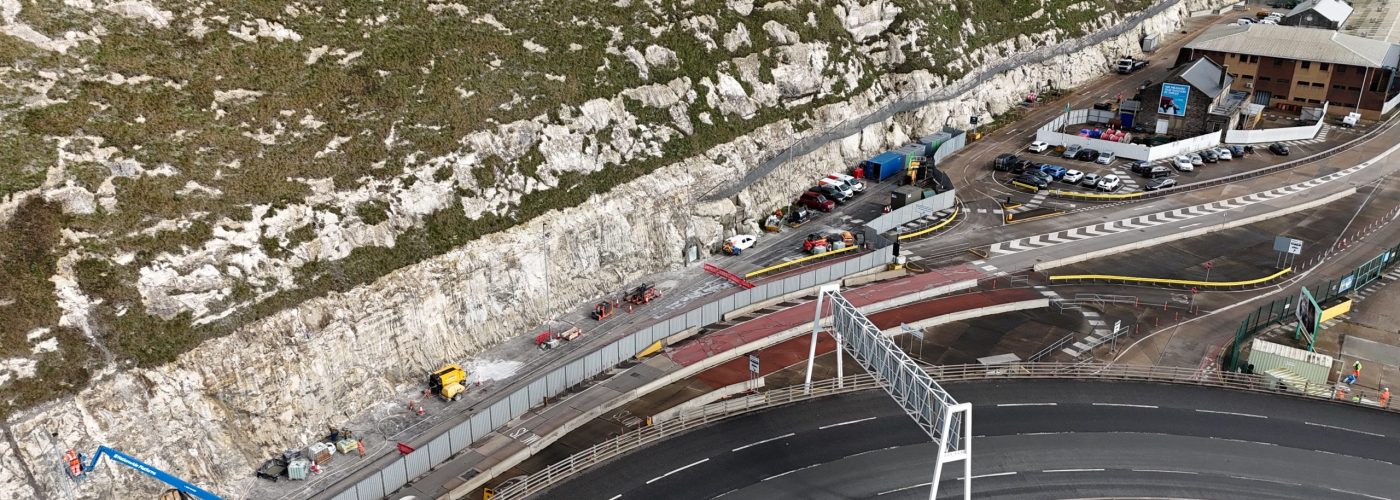Geotechnical specialists from CAN have embarked on a 20-week programme at the Port of Dover designed to protect the chalk face by removing around 400 tonnes of loose chalk and vegetation across an area measuring 225m long and 40m high.
The project is the second phase in a four-year undertaking at the busy port with CAN, an RSK Group company, taking on the role of principal contractor for the chalk face stabilisation works. The project has been carefully planned to take into account port operations, while being mindful of the impact on wildlife, including nesting birds.
CAN Geotechnical Project Manager Andy Pope said: “The team is very excited to work on a project associated with protecting such a quintessentially British landmark. Of course, our work is crucial from a very practical perspective: to make sure that the area remains safe for those who work in the Port of Dover. We will achieve this through a combination of light and heavy scaling to prepare the cliff face for further safety measures designed to prevent loose chalk falling from the cliff. The light scaling work will be carried out using small hand tools, supported by heavy scaling using excavators with bucket attachments.
“Increasingly, CAN is being called on to advise on cliff stabilisation strategies. Coastal erosion is a challenge that has hit the headlines in recent months across the UK, but regular evaluation and maintenance work such as this can make all the difference.”
The CAN team, which has previously worked on Brighton’s chalk cliffs, will also remove material including an old catch fence, cranked palisade fencing, existing steel hoarding and large concrete blocks.
Andy said: “Once we have removed these materials and scaled the cliff face to remove loose chalk, we will install a 225m long, 5m high rock fall barrier or catch fence, which is part of the rock fall barrier systems designed to collect and retain any future loose chalk. There will also be periodic maintenance work carried out to remove any rocks from the catch fence.”
The CAN Geotechnical team is well known for putting its rope access skills to impressive use at considerable heights, but, while this is a feature for some of the Dover cliffs work, mobile elevated platforms and excavators will provide the main points of access. These will deliver technicians to heights of 40m, allowing them to evaluate and remove loose chalk.
Andy said: “The mobile platforms and excavators are more suitable in this instance, as the cliff crest is a Site of Special Scientific Interest. This equipment is safe and efficient, ensuring minimal disruption to this sensitive environment. The team will also use a large rotating telehandler with modifications designed by CAN to make this suitable to drill into the cliff face to secure the high-level catch fence and upslope supporting anchors.”
The team has worked closely with the Port of Dover to tackle logistical challenges such as planning ahead to ensure team, material and plant deliveries comply with the Port of Dover requirements and UK border control. CAN has been supported by another RSK company on the project, RSK SafeGround, which provided ground-penetrating radar (GPR) surveying services. These are vital for a project such as this, as GPR is used to identify any buried or hidden services that could potentially impact on the work.
Building, Design & Construction Magazine | The Choice of Industry Professionals





